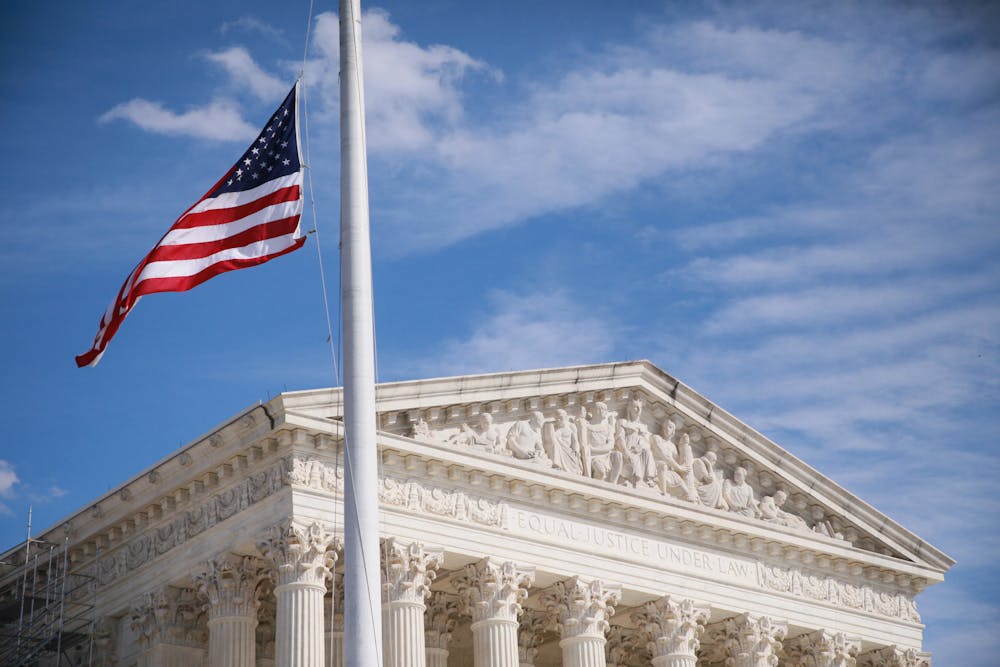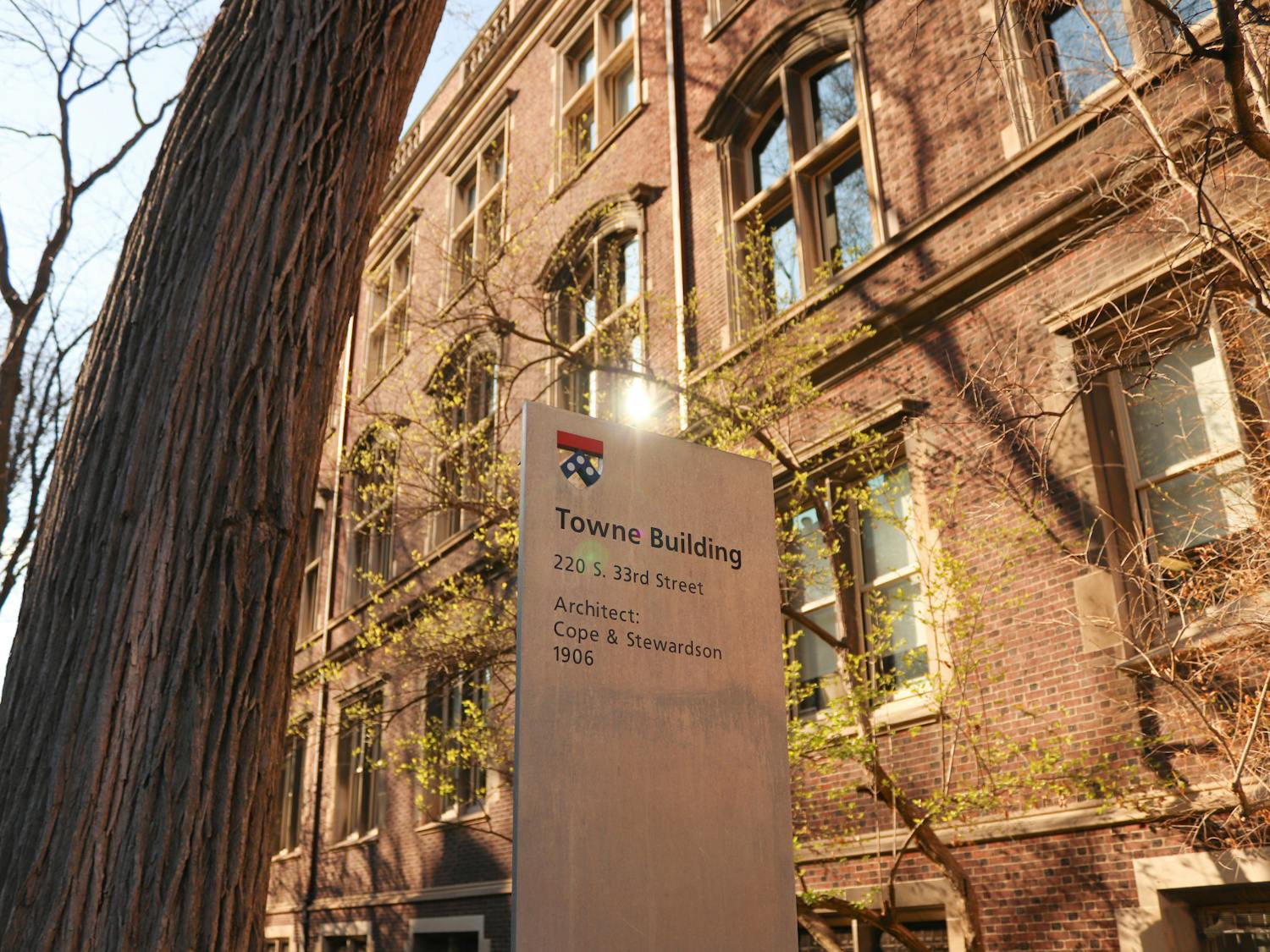Join me in a game. Let’s pretend we live in a society without the remnants of unbalanced power, poor economic strength and lacking resources. Virtually every component that once structured the experience of being Black in America is gone. Employment, wealth, education, housing accessibility, general mobility and healthcare services are available freely to everyone. There are no systemic barriers or disparities. Illegal firearms aren’t flooding certain neighborhoods. Children aren’t being killed after playing football. Moms aren’t shielding their children from the blasts of a semi-automatic rifle during a mass shooting in broad daylight. The term "first-gen" is used as a punchline to some of the funniest jokes. Every school is equipped with adequate resources to produce competent young people. We are living in bliss.
Now, let’s stop playing that game and acknowledge that we do not live in a society that reflects any of those things. The Supreme Court’s majority opinion in Student’s for Fair Admissions v. Harvard, which dismantled affirmative action, will set back countless Black students, because race in America always matters.
A few weeks ago, I was invited to a sit-down conversation with seven Philadelphia judges. At the event, each judge reflected on their unique road to the bench. Listening to them collectively articulate their histories was beautiful. One judge spoke of her experience being bused to a school outside her neighborhood in the 1970s. The school was academically rigorous; she became a successful student. When she returned to her neighborhood school, the positive impact of the school she was bused to was undeniable; her academic abilities were years beyond her peers.
Similarly, when I was a child, my family moved from the suburbs to northeast Philadelphia. I often pinpoint that change as being the hardest part of my childhood. It wasn’t because I had a hard time making friends or a lack of sleepover invites. The pain came from being thrown into an underserved education system.
I went from receiving daily affirmations from my yellow school bus driver to joining the tiny kindergartners on my block on the 20-minute walk to and from our school in rain, snow, or shine. The scarcity of resources in low-income communities leaves most students from underserved and predominantly Black communities with little options. They’re conditioned from the outset of their education to expect less from the education system and ultimately themselves. When students exceed the expectations that are set for them, some going as far as graduating from one of the most prestigious and selective high schools in Philadelphia, they are punished and denied their diploma for expressing excitement during their well-earned moment to shine.
There is no running from the truth. Black students do not have access to equality in America. They are treated differently in every setting from day one. Participating in a facade that denies the reality of being Black in America only serves to further the illusion of meritocracy and solidify discrimination. Access to higher education needs to be broadened for talented Black students, not choked. Education is a key tool in the fight to narrow the racial wealth gap. The Supreme Court’s decision will impede on Black families’ ability to gain financial independence for decades to come.
I recently caught up with Kevin Harden Jr., a trial lawyer who has led significant civil rights litigation in Philadelphia and also serves as a member of the Board of Trustees for Kutztown University, and asked him to share his thoughts about the Supreme Court’s recent opinion. He told me he was not surprised by the ruling but noted, “Affirmative action began as reparation for historical discrimination against, and the legal oppression of, Black Americans. The cases continue a trend of talking about anti-Black racism passively rather than confronting our country's history of racial apartheid.”
Harden’s points are valid. What will lead us to an authentic conversation about race in America? It won’t be collectively ignoring history and the impact of structural racism, and hoping for the best.
SEE MORE FROM JESSICA GOODING:
Take down the George Whitefield statue
Pass/Fail is Still Around, Don’t Overlook It as an Academic Tool
Looking forward, Harden advised that, “A strong response to Students for Fair Admissions would look like universities fairly assessing the remarkable talents and achievements of students of color, particularly those who descend from Freedmen, by accounting for their history, in a way that demonstrates the importance of explicitly remedying disadvantages cast on minorities by past legal and historical exploitation.”
Harden’s comments highlight something important. With this new chapter of history upon us, without the legal support in place, we must be affirmative in our steps to help one another. We must be conscious of how race negatively impacts Black Americans. Not because it makes us feel good, but because it is part of American life at every turn. It is unspeakably harmful to be dismissive of that reality. We must continue opening doors for people who’ve been historically locked out.
My time at Penn enhanced my ability to think and completely transformed my life. It’s an experience I will cherish forever. I sincerely hope there will be a flow of people with backgrounds similar to mine who get to feel that way about their education.
JESSICA GOODING is a 2021 College graduate and a former staff columnist for The Daily Pennsylvanian. She was awarded Columnist of the Year in 2020. She currently works as a civil rights paralegal at a law firm in Philadelphia. Her email address is jessicagooding14@gmail.com.









